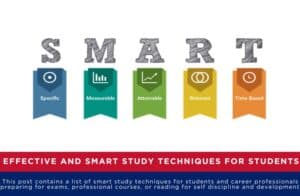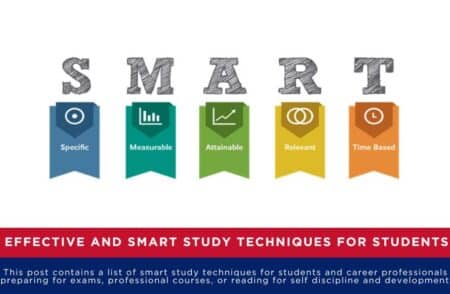Do you wish to know how to create a study schedule?
In the realm of higher education, both at home and abroad, the pursuit of knowledge demands not just dedication but a well-crafted study schedule.
We are live on Twitter! Join our fast-growing community of scholars on X!@ngscholarsworld
— Scholars World (@ngscholarsworld) November 11, 2023
Kindly follow us, like, and share our posts to help reach a larger audience. #Scholarship #UK #EducationUSA
Juggling various activities can be overwhelming, but a structured plan ensures that your academic goals are met while maintaining a balanced life.
This article delves into the intricacies of creating and sustaining an effective study schedule. We will unravel the full details of how to create a study schedule as a student at any level of education.
Optimizing Your Academic Journey: Crafting a Successful Study Schedule
Embarking on higher education is a monumental achievement, offering more than just academic insights. It’s an avenue to explore opportunities, build connections, and develop essential life skills.
However, the myriad of activities especially if you combine part-time jobs with your study, can distract from the primary purpose of enrollment, necessitating the need for a study schedule.
To maximize your time and get optimal result of your efforts, a successful study schedule is needed. we have provided a list of how to create a successful study schedule in the following paragraphs;
How to Create a Study Schedule
1. Setting Clear Goals
The foundation of a successful study schedule lies in clear goals. This is one of the fundamentals of how to create a study schedule.
Whether you are aiming to ace a particular course, complete a list of subjects, sit an exam or incourse, or overcome challenges.
Setting SMART goals (Specific, Measurable, Achievable, Relevant, Time-bound) helps to surmount this challenge. Identify areas of weakness, define your objectives, and align your goals accordingly.
2. Understand Your Learning Style
Each student has a unique learning style. Some thrive in libraries, while others prefer discussion groups or solitary study. Understanding your optimal learning environment and techniques enhances your effectiveness.
Ask yourself: Where do I study best? What enhances my study process? Am I more active at night or during the day?
Tailoring your schedule to your strengths ensures a personalized and efficient approach to learning.
Explore more scholarship opportunities below.
3. Prioritize Subjects and Tasks
Effective prioritization is key to managing your study schedule. This is another invaluable hint on how to create a study schedule.
Focus on subjects that demand immediate attention or those you find challenging. Allocate ample time to these subjects before addressing others.
If you have always found Mathematics too difficult to understand in secondary school, do not desire to pursue engineering, Statistics or Mathematics-related courses in the university.
By identifying and prioritizing your study areas, you ensure a strategic and balanced approach to your coursework.
4. Adopt Time Blocking Techniques
Adopting time-blocking techniques adds structure to your study routine. Time-blocking refers to the allocation of a specific timeframe to do or carry out an activity.
Allocate specific time frames to different courses or topics, promoting focus and intentionality in your reading sessions.
Additionally, creating a weekly study calendar ensures a comprehensive plan, helping you maintain consistency.
5. Utilize Technology Tools
Enhance your study schedule with technological tools and applications.
Apps like Focus Keeper, My Homework, Todolist, and Google tools (Drive, Docs) can maximize your study time. Additionally, consider traditional tools like a pen and jotter for note-taking during your study sessions.
6. Use the Pomodoro Technique
The Pomodoro Technique is a time management method based on 25-minute stretches of focused work broken by five-minute breaks.
Using this method, you will study for a 25-minute stretch and relax for 5 minutes. This relaxation can be in form taking a walk while ruminating on what you have read, taking a cup of water, or putting what you read into real life practice.
The Pomodoro Technique can also help individuals develop more efficient work habits. Through effective time management, they can get more done in less time, while achieving a sense of accomplishment and reducing the potential for burnout.
7. Flexibility and Adaptability
While a meticulously planned study schedule is essential, unexpected events may arise. Classes, projects, or emergencies can disrupt your plan.
Allow flexibility in your schedule to adapt to unforeseen changes. Discipline is crucial, but flexibility ensures your schedule remains realistic and achievable.
8. Accountability Partnerships
Boost the effectiveness of your study schedule by forming study groups. Engaging in intellectual discussions with peers fosters accountability.
Group members can provide support, share insights, and assist with challenging subjects. The collaborative learning environment of a study group facilitates better assimilation and understanding of complex topics.
9. Reflection and Adjustment
Periodically revisit your study schedule for reflection and adjustment. As you progress through your academic journey, your initial schedule may require modification to align with your current needs.
Consider your strengths and weaknesses, ensuring your revised schedule accommodates your evolving requirements. It is a very a germane procedure on how to create a study schedule.
MUST READ
Conclusion: A Continuous Journey of Growth
Crafting and maintaining a study schedule is not a one-time endeavor; it’s a dynamic process that evolves with your academic journey.
By integrating these strategies, you optimize your study routine, ensuring a harmonious balance between academics and other aspects of your life.
Periodic reflections and adjustments guarantee your schedule remains a valuable tool in your pursuit of knowledge.





















